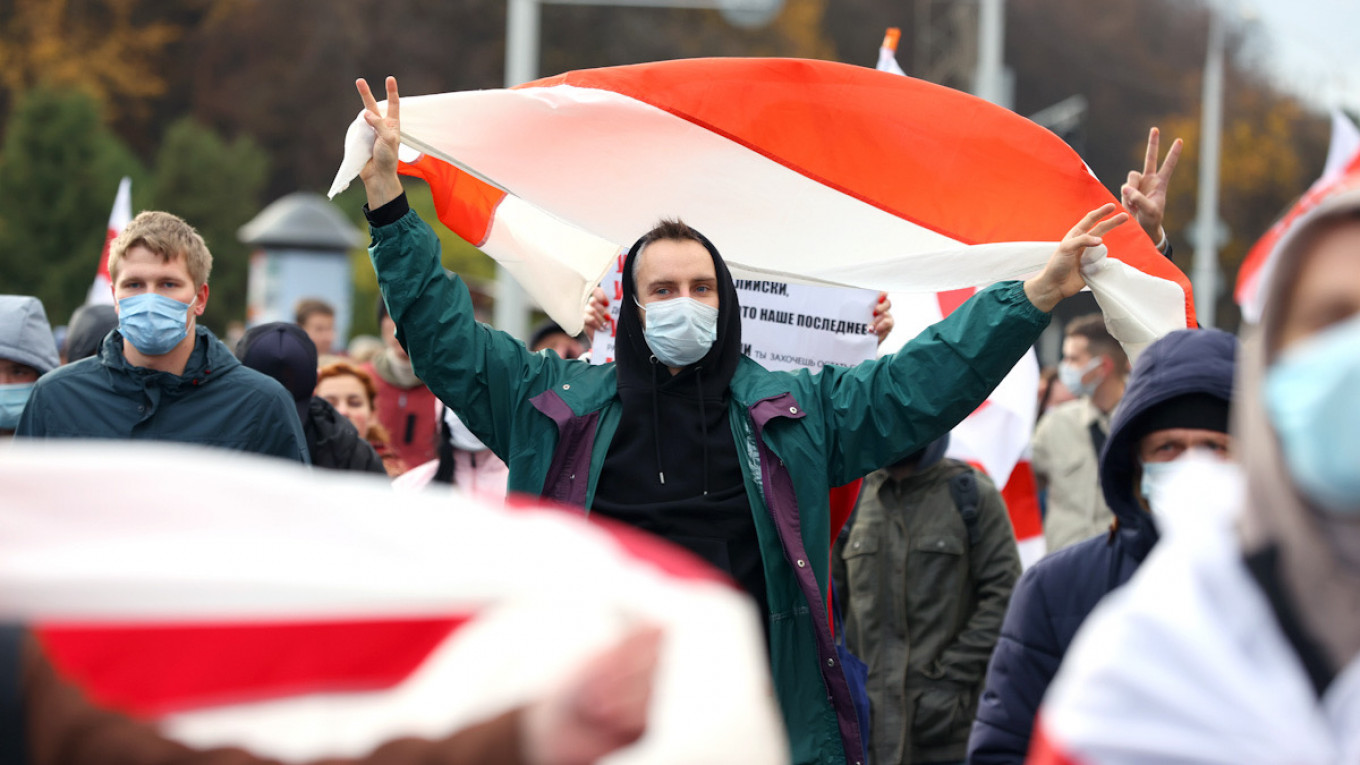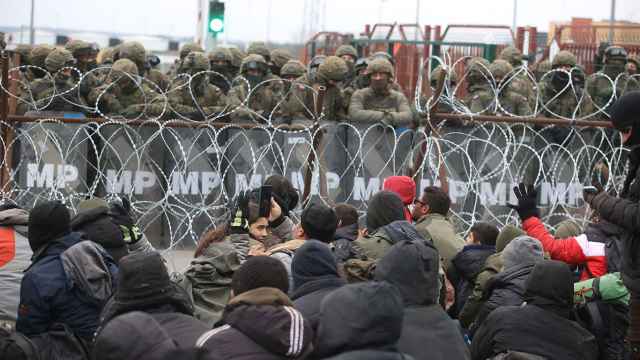Sixteen years ago, Russians held their breath as they watched Ukraine’s Orange Revolution and wondered whether the same thing would happen here. Then, with some people sighing in relief and others in disappointment, they concluded: “No, it won’t.”
Not long afterward, though, the alarm sounded again: Would Russia have its own “Maiden moment”? Then, breathing the same sighs, they reached the same conclusion. But, after all that has transpired in Ukraine and between Ukraine and Russia, Moscow labeled its erstwhile brother nation to the south as Public Enemy No. 2 — second only to its main adversary, the United States.
Now, problems have arisen in Belarus, the country that has long ranked as Russia’s closest ally and that many consider a sort of “Russia in miniature.”
In both countries, the broad popular support that their respective presidents had enjoyed for many years began to wane. The presidential election in Belarus and the national referendum in Russia proved difficult steps towards extending those already inordinately long presidencies.
The “just because” authorities
The confrontation between street demonstrators and Belarusian President Alexander Lukashenko is only part of the overall situation in that country, but it is the main thing in the minds of Russians.
Importantly, Russians know from their own experience in 2011-2012 about Belarus-style street protests — as compared to the mayhem of Maiden. Therefore, we structured our Levada Center survey to show how Russians feel about the elections and street protests in Belarus as a function of whether they approve or disapprove of President Vladimir Putin’s activities in Russia. For the sake of brevity, we call the former the “approving” group and the latter the “disapproving” group.
A survey conducted in August 2020 asked Russians whether the elections in Belarus had been conducted fairly or unfairly. Almost 60% of the “approving” group considered them fair and 25% unfair. Conversely, 60% of the “disapproving” group considered those elections unfair and only 30% saw them as fair. These results seem logical.
We next asked whether they would like Lukashenko to remain in office or for the opposition candidate to come to power. Knowing that most of the “approving” group prefer that Putin remain president of Russia, logic suggested they would wish the same thing for Lukashenko. And that is what we found. It was very telling to learn, however, that the number of respondents wanting the Belarusian president to remain in office actually exceeded the number who believe he won the election fairly.
To explain this, one might conclude that pro-Putin Russians do not consider electoral results the main basis of a leader’s legitimacy. However, even some of the “disapproving” group that considered the Belarusian elections to have been unfair also recognized Lukeshenko’s right to the presidency. As one respondent explained it: “Fair or not, it isn’t about the election. Let him rule. The authorities are in power just because they have the power.”
Because they’re indifferent
There was a time when thousands of demonstrators also gathered on the streets of the Russian capital to protest the falsification of election results. As we know, nothing came of it.
Nevertheless, the Belarusian people have not gone down that road yet, and they hope things will end differently for them. And here we come to the difference between attitudes in Russia and Belarus.
In response to the question of how they feel about the protestors in Belarus, more than one-third of the “approving” group, but also more than one-fourth of the “disapproving” group described themselves as “indifferent.” And, as expected, most of the “approving” pro-Putin respondents reacted negatively to the Belarusian protestors, while the “disapproving” anti-Putin respondents reacted positively.
As protests continued in Belarus in September, a survey that month found that one-half of Putin’s supporters voiced approval for Lukashenko and only 35% of anti-Putin respondents did. However, the same number said they did not sympathize with “either side.”
In October, the same 35% of the “disapproving group” said they were indifferent to the struggle in Belarus. Also that month, 40% of the “approving” group expressed such indifference, although 45% expressed support for Lukashenko. Thus, the positions of the two groups differ only slightly: neither is an especially ardent fan or opponent of the Belarusian authorities.
In August, as we reported at the time, most Russians did not believe that Lukashenko would leave office. In fact, three months of street protests did not force him to step down. Interestingly, the Far Eastern Russian city of Khabarovsk saw street demonstrations during the same three months. And, although 47% of Russians surveyed said they supported those protestors, one-third expressed indifference to their concerns.
To corroborate these findings, consider these sentiments based on age. As expected, an overwhelming majority of elderly respondents support both Putin and Lukashenko. Also as expected, young respondents were more likely to oppose Putin, and even more likely to express a negative opinion of Lukashenko. The big surprise was that most young Russians said they “do not support either side.” This is a denial of support not only for the “last dictator in Europe,” but also for those with the courage to take to the streets to oppose him openly.
What does it mean? Is it a sign that Russian public opinion has hit a dead end? Or are the Russian people intent on “going their own way”?
This article was first published in VTimes.
A Message from The Moscow Times:
Dear readers,
We are facing unprecedented challenges. Russia's Prosecutor General's Office has designated The Moscow Times as an "undesirable" organization, criminalizing our work and putting our staff at risk of prosecution. This follows our earlier unjust labeling as a "foreign agent."
These actions are direct attempts to silence independent journalism in Russia. The authorities claim our work "discredits the decisions of the Russian leadership." We see things differently: we strive to provide accurate, unbiased reporting on Russia.
We, the journalists of The Moscow Times, refuse to be silenced. But to continue our work, we need your help.
Your support, no matter how small, makes a world of difference. If you can, please support us monthly starting from just $2. It's quick to set up, and every contribution makes a significant impact.
By supporting The Moscow Times, you're defending open, independent journalism in the face of repression. Thank you for standing with us.
Remind me later.








